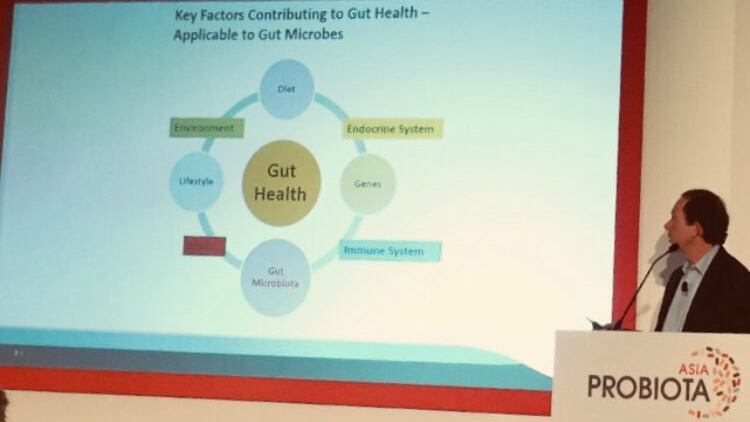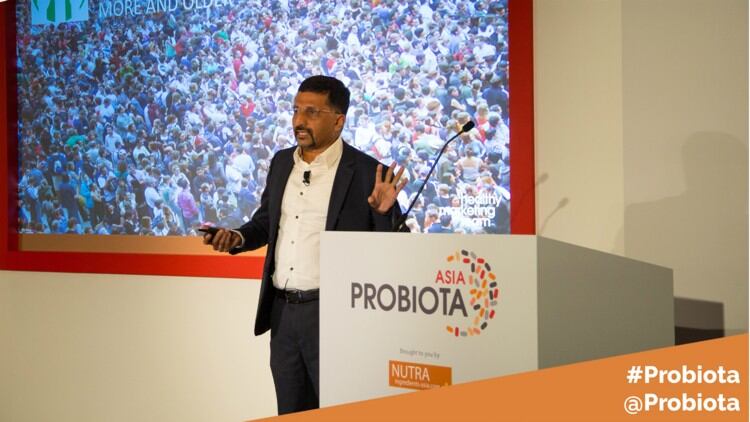
NutraIngredients, in conjunction with GOED, will be holding APAC's first ever omega-3 event in Singapore in February 2019, featuring renowned speakers from CSIRO, A*STAR, Koure, GOED and more.
However, better delivery systems and stability solutions will need to be found to maximise their potential.
Dr Michael Conlon, a senior research scientist at Commonwealth Scientific and Industrial Research Organisation (CSIRO), pointed out the above concept while speaking at the Probiota Asia Summit.
Resveratrol, which is found in the skin of berries, is an example of a dietary polyphenol that is capable of altering microbial activity in the gut.
Conlon said that a 2016 study showed that consumption of resveratrol increases the levels of lactobacillus and bifidobacterium in the gut.
In turn, these microbes inhibited the production of trimethyl-N-oxide (TMAO) – a known risk factor for artherosclerosis.
Propolis, a substance collected by honeybees from plants, is another polyphenol that can alter the gut microbes.
A study conducted by the Bee Research Institute at Beijing-CSIRO showed that propolis could reduce the number of bacteroides, which in turn alleviates colitis – a condition where the inner lining of the colon is inflamed.
“Follow-up studies showed that dietary Chinese and Brazilian propolis-induced attenuation of DSS-colitis is linked to a reduction in the number of gut bacteroides spp,” he said.
Resistant starches have also shown to affect gut health by inducing the production of short-chain fatty acid (SCFAs) by the gut microbes.
SCFAs are associated with a number of health benefits. For instance, they are the fuel for goblet cells, which in turn produce mucus in the gut to protect gut tissue.
Future probiotics
Conlon pointed out some examples of gut microbes that could be new targets for probiotic and prebiotic innovations, such as the Faecalibacterium prausnitzii and Akkermansia muciniphila bacteria.
F. prausnitzii produces butyrate – which in turn improves the integrity of the gut lining by reducing pro-inflammatory factors.
Other key candidates of butyrate producers include R. intestinalis, E. rectale, and E. hallii bacteria.
In addition, research has shown that F. prausnitzii is able to counterbalance the microbial imbalance in patients with Crohn disease.
However, he added that there were concerns surrounding the ability to cultivate these bacteria and the pre-conditions to maximise their activities and benefits remain unknown.
As for A. muciniphila, it has been shown to protect against atherosclerotic lesions. A research by CSIRO also showed that individuals suffering from certain conditions, such as autism, have a lower amount of the bacteria.
For instance, it was observed that the amount of A. muciniphila and bifidobacterium spp are lower in the faeces of children with autism.
“Some of you may or may not know that kids with autism actually have significant more gut problems, so we investigated and one of the initial findings was that there is a decrease in A. muciniphila. We also found other differences in the gut microbiome,” Conlon said.
These differences included an elevated amount of urinary bacterial metabolites in these children, such as indolyl-3-acryloylglycine (IAG) - which is associated with the leaky gut syndrome.
Encapsulation technologies
Encapsulating probiotics was important to ensure preserve the probiotics during the manufacturing and storage process, Conlon said.
“If we would like to use probiotics and polyphenols in the future, then we need to start to develop some better delivery systems, I mean its ok to swallow the powders of microbes in solutions, but polyphenols in particular, is often a very astringent bitter taste associated with those, so we need to try to mask the taste.
“There’s also the problem of storage and stability in many probiotics and that’s where encapsulating those is very beneficial because it helps to preserve those probiotics during the manufacture and storage. It also helps to get those microbes and other supplements down to gut lining.””
He elaborated that encapsulation helps to ensure the gastric survival of probiotic organisms and prebiotics, hence, allowing them to impact the lower reaches of the gut.
He added that the properties of the encapsulant could also control the release of probiotics, thus reducing the loss of probiotic viability during processing or storage.
At the moment, a range of encapsulation technologies that use different combinations of alginate, chitosan, xanthum gum, starch, and gelatin etc are available.
In the case of the CSIRO, he said that the team had developed a high oil loading, long shelf life technology platform, known as MicroMAX for protecting and delivering bioactive into functional food.
Specifically, it is an emulsion based delivery system suitable to deliver single or a combination of bioactives that have different solubilities.
In a study conducted, they observed that consuming orange juice with added microencapsulated probiotics for three weeks was able to enhance the metabolism of flavanones in orange juice.





